From Analog to Digital: The Revolution Against the Patriarchal World Order
In the analog era, our perception was shaped by certain images and concepts created in our minds by whatever the media presented to us, including the books we read, movies we watched, and music we listened to. We believed we were being informed on politics, social sciences, economics and psychology when we read books or newspapers, or when we watched television. We were not allowed any choice but to believe the information, whether it was from a local or international source. In fact, we had no right to choose to learn or not to learn what information and how much of it we needed. We were sure, however, that if some data were presented, it was information we needed. Which also meant: if not presented, we would never be aware of the information!
Freedom of expression is not enough. We must free our minds from forced patterns of thought.
The main problem in the analog world order, created through the educational and familial systems over thousands of years of patriarchy, is one caused by self-censorship due to the nature of the perception we develop from the controlled and limited information that has been presented to us. This is nurtured by censorship applied from the top down by governments.
Now that digital online platforms of communication are developing, people are beginning to realize that, governments all around the world apply censorship, although this is administered in varying doses. More to the point: people are becoming aware of self censorship.
The younger generation, who spend so much time in the world of the internet and in computer games, have started to move away from the restrictive patterns of thought defined by traditional social environments like family and school. In the formation of cultural definition in the analog world, the most important factor was the concept of a “unifying singularity of language.” In other words, the idea that a universal language would facilitate communication. This concept has started to fade, and another is being formed in the digital world community, led by the young. For example, the tools to translate a written sentence into another language on the fly, new shared languages created in computer gaming, and the unity of the language of technology, have eroded the barriers between different languages. Young people have discovered and begun to form their own unique culture. This culture is chipping away at the very notion of national borders. Moreover, this change and its influence is no longer limited to the young. Anyone who can communicate with these young people, anyone who can engage with the technology and who can socialize or interact with the world through digital platforms can bring about change and transformation within this new global culture.
By the last decade of the 20th century, the growing popularity of on-line computer games among the generation born after 1990 had caused a fundamental estrangement from the norms of traditional society. Their growing on-line presence and voluntary exclusion from traditional forms of socialization have required and fostered different kinds of fraternities: first, hanging out and synchronizing in virtual chat rooms (internet relay chat, IRC) to play games, and later on social-media platforms like Facebook and Twitter. This new way of socializing has resulted in a further estrangement from traditional societal thought patterns. These young people have started to define their interactions by using computer terms such as copy, paste, accept, ignore, delete, ‘404 not found’, like, share, not share, add, remove, etc., in ways that previous generations could not have foreseen.
These young people have been generally perceived by traditional society as being antisocial and apolitical, but this is a misconception. On the contrary, far from being disinterested in politics, they have simply developed different ways of engaging and opposing. This new generation’s political behavior differs from that of the usual old political parties. Instead of organizing in accord with the traditional hierarchical structure of conventional political systems, these young people organize spontaneously in new and different ways, engaging with digital platforms, finding and using the language of humor, sarcasm and ever more cynicism to protest and inform.
The dissociation of this digital generation from the thought patterns of the patriarchal system is the most important indicator that we are leaving the patriarchy’s analog system. The recent demonstrations in Taksim and Gezi Park in Turkey are a case in point: the majority of those present were between 18 and 24 years old. What’s more, it is clear that this new perception of the world is not only global but also inevitable in its growth. One can no longer deny that we are moving from an analog to a digital world.
Today, countries such as China, North Korea, Iran, Saudi Arabia and Turkey, to name a few, are trying to impose restrictions on the internet. The attempt to stem the free flow of information has become a hot topic worldwide. In the analog world, information was power, to be possessed, dominated and appropriated by the establishment. Alongside the developments in new technology, information has become more anonymous and therefore, the property of no one. No longer the property of the establishment, information itself has given power to the generation who have been disenfranchised and estranged from the thought patterns of the patriarchal system. Throughout the world, to varying degrees, there are attempts to ban or prohibit easy access to information because of the establishments’ fear of what this means to their hold on power. The justifications by those in power — that prohibitions are needed for good reasons, for security or safety — are no longer credible. The resistance to such attempts to block the free flow of information, the calls for lifting of the prohibitions, are not only local but also global and exponential in their spread.
We all know the difficulties that have come from attempts to impose artificial borders on the world. But they are not as powerful or uncrossable as they appear to be on maps. The free flow of communication between people via the internet, the easy access to all the information for which they search, and the possibility to declare to the world what’s happening through social media tools such as Twitter and Ustream are destroying the classic media, the traditional ways to socialize, and the hold on power that the education systems had in the analog world. Power no longer resides in weaponry. Today, information and the way it is shared equate to power. To the dismay of the patriarchal system, it is no longer so easy to block this new circulation of information/power.
In the analog world, two types of relationships were sociologically defined: the primary relationship that we build within the family and the secondary relationship that we build in society. Women were constrained by a division of their lives into compartments: domestic, business-relations, married woman-wife, and so on. A move to the digital world is allowing women to make themselves whole again and communicate directly with others. Women are realizing that they can make their voices heard without having to adopt any of the disguises that society expects of them. The more aware they become of their voices and of the fact that they are not alone in this, the easier it is to talk about the censorship, oppression and violence they experience. Now, in spite of societal censorship, they are less likely to apply these prohibitions to themselves and are becoming able to express themselves freely. They embrace their new freedom of expression with determination, and they work to provide other women with the means for their emancipation. Consequently, during this period of transition from analog to digital, the second most numerous users of social media, after the young, are women.
In this transition period, women’s existence has become contingent on their ability to defend their freedom of expression. Therefore women are vocal in their determination to be included in the process of laying the foundations of the digital world, this time not despite, but together with men. The previous century was called The Age of Reason. Yet it was also a time characterized by a preponderance of wars from which reason was entirely absent. This new 21st century, in which we will pass from the analog to the digital world, will be the Age of Perception and Reason.
When the Gezi demonstrations in Istanbul started, the first to go out into the streets were not only the generation of the digital world, who, it had been thought, were uninterested in politics. They were swiftly followed by women who shouted “Enough!” to their oppressors. The authorities, who could not silence the rebellious youths of the digital world, had to call out to the parents and plead with them to collect their children from the streets.
For the first time in Turkey, mothers from different socioeconomic and cultural backgrounds, and of varying ages, got organized via social media; later they would form a human chain around Gezi Park in response to the authorities. Their hands, hearts and voices were united. They said, “We didn’t come here to collect our children but to be with them on the streets. Everywhere is mother, Everywhere is resistance.”
To sustain its command over humanity, the dominant male system continues and will carry on saying stop to each woman who seeks freedom, supports freedom, shouts no and wants to challenge patriarchy. But in direct relation to the expansion of digital media, now is the first time that freedom of expression has no rigid identity, nationality, religion, sexuality, ideology or age. This is a great, unique, and mortal threat to the dominant male system: aka the analog world system.
Editor’s Notes: Meltem Arikan is a Turkish novelist and playwright. Her fourth novel, Yeter Tenimi Acitmayin (Stop Hurting My Flesh), was banned in early 2004 by the Committee to Protect Minors from Obscene Publications, with the accusation of “Writing about the non-existent fact of incest in Turkey and attempting to disturb the Turkish family order with a feminist approach.” The ban was lifted after two months and Arikan has been awarded the Freedom of Thought and Expression Award 2004 by the Turkish Publishers’ Association. In June 2013, Arikan went through a vicious, life-threatening campaign in her country because of her most recent play, Mi Minor, which was accused by pro-government TV news channels and newspapers of being rehearsals for the Taksim Square and Gezi Park protests. Photographs one and ten by T. Photographs two, six and seven by Charis Tsevis. Photographs three, eleven, twelve, and thirteen by Eser Karadag. Photograph four by Cuito Cuanavale, five by AK Rockefeller, eight from Seattle Municipal Archive, nine from the Library of Congress and fourteen by Ted Lipien.
Related Articles


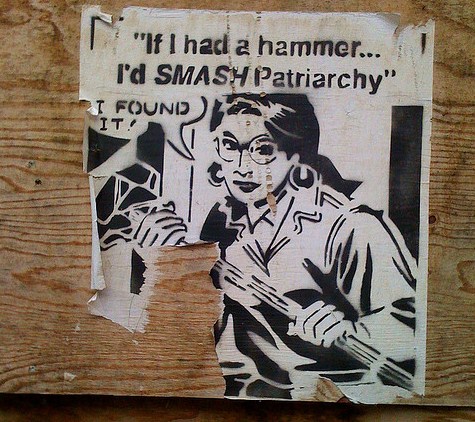
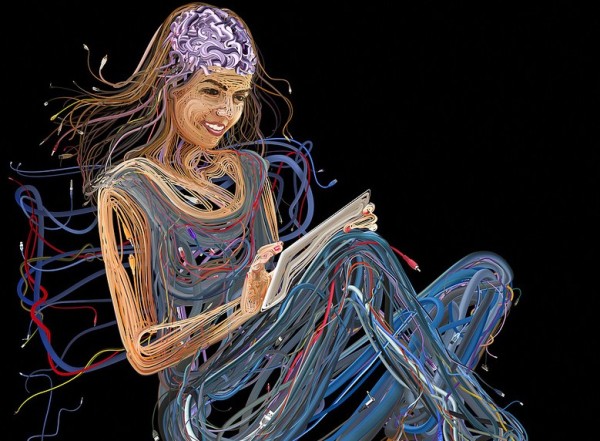




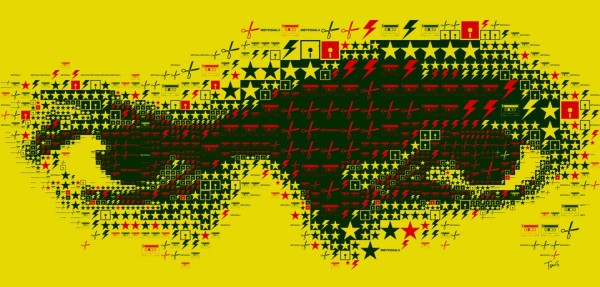

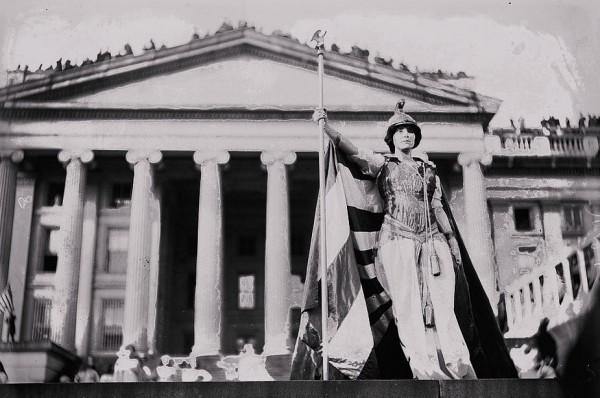




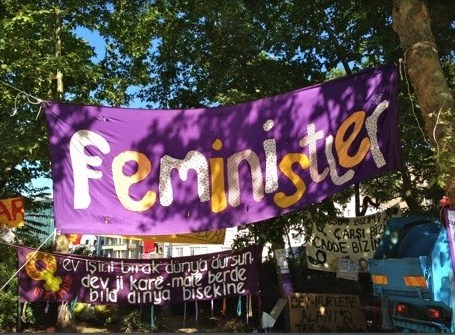











2 Responses to From Analog to Digital: The Revolution Against the Patriarchal World Order
You must be logged in to post a comment Login